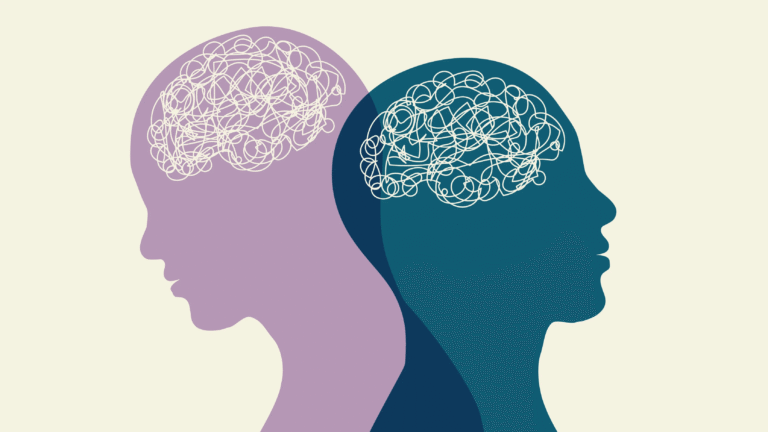Anyone navigating personal growth knows the subtle yet persistent dissonance that can accompany daily life. It’s occasionally loud and dramatic — but more often than not, it’s a hum beneath the surface, a quiet but persistent companion if you like: a sense that something is “off-kilter”, not just in the world, but within oneself. Even when life seems stable or successful, we all experience moments — or extended periods — of unexplained guilt, insecurity, defensiveness, and emotional exhaustion.
This inner discomfort is a common thread in therapy sessions, mindfulness circles, and coaching conversations. People ask: “Why do I feel this way when I’m trying so hard to stay grounded, self-aware, and balanced? Why does emotional peace feel so fleeting?”
A compelling theory gaining global attention—both in esteemed scientific circles and among the general public—comes from Australian biologist Jeremy Griffith, whose work, supported by the World Transformation Movement, a not-for-profit organization, reframes psychological distress not as personal failure but as a species-wide conflict rooted in our evolutionary development. He calls it the ‘human condition’.
A Radical Biological Reframe
Jeremy Griffith’s central thesis is that as humans evolved consciousness — the ability to think, reflect, and reason — this new mental capacity came into direct conflict with our older, instinctive programming.
For millions of years, our instincts guided behavior with remarkable efficiency. But as our minds developed the power to question and override those instincts, a clash emerged. The instincts couldn’t understand or accept this shift, and so, much like miscommunication between two parties speaking different languages, a profound internal tension was born. Over time, this tension escalated into an inner war that created psychological confusion, guilt, shame, insecurity and ultimately the array of defensive behaviors we see in ourselves and society today.
Griffith emphasizes this is not a moral failing, but a natural and inevitable byproduct of the evolution of consciousness. In his view, psychological suffering — anxiety, self-doubt, depression, narcissism, aggression — are not pathologies, but symptoms of an ancient biological conflict between the pull of inherited instincts and the drive to understand and acquire knowledge.
Read more: Anxiety
Key Insights from Jeremy Griffith’s Theory
Here are some of the central points of Jeremy Griffith’s biological explanation of the human condition:
● The source of our psychological pain is evolutionary: Our inner turmoil isn’t random or solely shaped by trauma or upbringing. It originates from a deep biological conflict dating back millions of years.
● Conscious thought disrupted instinctive harmony: As reasoning emerged, it began overriding instinctive behaviors, causing internal confusion and self-doubt.
● Defensiveness is not failure: Patterns like anger, egocentricity, or emotional numbing, what Griffith terms “alienation”, are attempts to manage an unresolved inner war — they are not evidence of an innate moral inadequacy.
● We are a psychologically “upset” species: Griffith uses this term not as judgment but as a compassionate description of our psychologically wounded state.
● The intellect was right to defy our instincts. Becoming psychologically “upset” was the heroic price our species had to pay for continuing the heroic search to find understanding.
● Healing starts with understanding: Once this core conflict is fully grasped, it can dissolve the shame, self-criticism, alienation, and thus the defensive behaviors that underlie personal and humanity’s struggles.
Wisdom That’s Winning Over the Scientific World
Though still gaining traction, Jeremy Griffith’s groundbreaking approach has been recognized and endorsed by leading figures in the mental health field for its bold and innovative perspective.
Professor Harry Prosen, a former President of the Canadian Psychiatric Association, has called it “the 11th hour breakthrough” needed for the psychological rehabilitation of humanity.
Professor Mihaly Csikszentmihalyi, the renowned psychologist behind the concept of ‘flow’, said it might “help bring about a paradigm shift in the self-image of humanity”.
Professor Scott Churchill, a former Chair of Psychology at the University of Dallas, described Griffith’s work as “the book all humans need to read for our collective wellbeing.”
Compassion is a Byproduct of Jeremy Griffith’s Insight
One of the most powerful outcomes of Jeremy Griffith’s explanation of the human condition is its purported dissolution of harsh self-judgment. By tracing our emotional struggles back to a misunderstood but ultimately noble human journey — the journey to reconcile instinct and understanding — Griffith is providing an unusual form of reassurance.
This isn’t about denying trauma or discounting social factors. Rather, it’s about placing individual experiences within a bigger evolutionary context. This allows people to view themselves — and others — with more compassion. Instead of blaming ourselves and others for dysfunction, which creates deeply unhelpful, polarising judgments on all sides, we can bring empathy to the entire human experience.
Professor Prosen articulated this shift clearly: “The beauty of Griffith’s treatise is that the healing starts at the macro level of the universal human condition… It brings the greater context and love to all human psychosis and suffering, and then, from under the umbrella of that safe position, everyone can gradually work inwards to their particular experience.”
Where Science Meets Practice: Applying Griffith’s Ideas in Mindfulness and Coaching
Jeremy Griffith’s theory has the potential to dovetail powerfully with practices like mindfulness and coaching. Where mindfulness teaches us to observe our emotions without judgment, Griffith provides a scientific reason why those emotions arise in the first place.
In coaching, where many clients wrestle with issues to do with self-validation and chronic self-sabotage, Griffith’s insights offer a compelling new lens. If these patterns are viewed not as personal shortcomings, but as the possible echoes of an unresolved evolutionary conflict, they may become easier to understand — and, crucially, to forgive. This reframing has the potential to foster deeper self-compassion and unlock new pathways for growth.
Some may also hear echoes of Jungian psychology in Griffith’s work: the theme of reconciling opposing forces within the psyche, and the journey from fragmentation to wholeness — the ownership of “our shadow” as Jung put it. However, Griffith contexts this journey in a whole new evolutionary context.
From Coping to Context
So, in a world saturated with the hope of quick fixes, affirmations, and dopamine hacks, Jeremy Griffith’s work stands apart for a crucial reason: it offers context, not just coping strategies. It doesn’t aim to replace therapy, coaching, or mindfulness — not yet, anyway — it aims to ground them, offering a scientific explanation for the emotional root of human distress; one that ennobles that distress as the result of a heroic journey to find understanding.
At first, the idea that “everyone is wounded” might seem bleak. But in truth, it actually comes across as deeply humanizing. It removes the sense of isolation. And it opens a door to collective understanding — and, at day’s end, ultimate healing.














